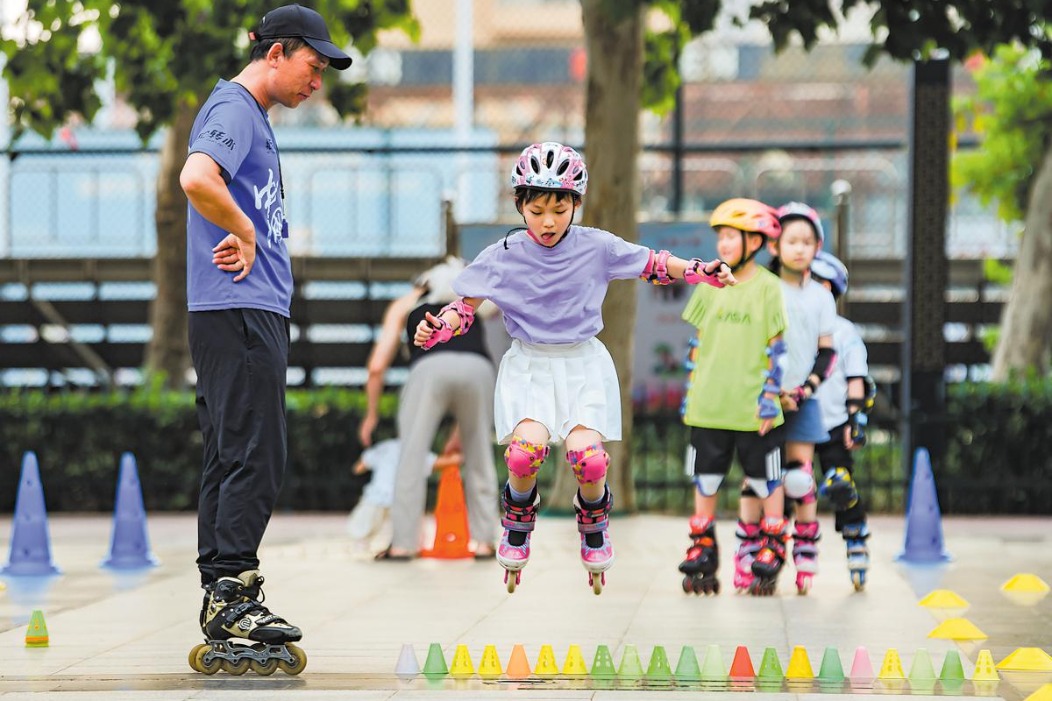Overworked and 'under played'? Ending kids' summertime blues
While many parents believe in holiday study programs, experts argue children need free time to develop

Enjoyable activities
When children are given free time, they develop a strong sense of self-efficacy — a person's belief in their ability to complete a task or achieve a goal. They work harder as they know they are working for themselves, rather than being forced to do something for others, several experts said.
Wu Tingting is the mother of a 10-year-old boy in Shanghai. She said she can sense the development of his self-efficacy when he engages in activities he enjoys, such as conducting physics and chemistry experiments with apparatus or building Lego sets.
"He becomes deeply immersed in those activities and improves as he continues. In contrast, when it comes to completing certain school assignments, I have to urge him repeatedly to do them and he often drags his feet," said Wu, an elementary school teacher.
Wu agrees with leaving free time for children. She believes in a balanced holiday schedule for children, consisting of equal parts of learning and leisure time. While she does not oppose her child engaging in scientific experiments, she considers playing with water guns a waste of time.
With her dual roles as a mother and a teacher, Wu said she feels more lenient toward her students but stricter with her own child, as she has higher expectations for him.
"Despite knowing the distinct roles of home and school — where home provides love and support and school focuses on education — I find it challenging in practice not to push my son to study," she said.
Sun Jinhua, director of the mental health department at the Children's Hospital of Fudan University, said intensive learning schedules not only eat into children's rest time, but also diminish their interest in new subjects when school resumes.
He said many middle school students who seek medical assistance from the department suffer from emotional disorders. These often stem from being overloaded with study during primary school years, leading to boredom and even fear of learning. Typical symptoms include insomnia, loss of emotional control, and refusing to go to school, as well as physical ones such as headaches and chest tightness.
"For such children, excessive study time can be likened to overeating. Just like those who overeat vomit and lose interest in food, excessive studying can lead to loss of interest in learning," Sun said.
























